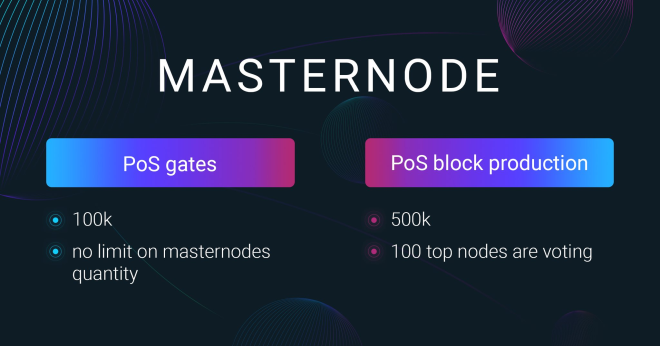SONM continues to build momentum as the project heads toward a full commercial release in late 2018.
The blockchain-based fog computing platform puts processing power on a decentralized marketplace, allowing anyone to purchase resources using cryptocurrency. The network can handle a variety of tasks, with early use-cases including big data analysis, scientific calculations, image rendering, machine learning, and running video game servers.
On May 31, SONM team members Vitaly Fedosov (Content Manager) and Igor Lebedev (CTO) sat for a Q&A session with the community. The team fielded questions about recent events and clarified details about how the platform could change the nature of decentralized computing resources.
The talk runs for an hour and a half, and is filled with useful information about SONM’s development. If you don’t have time for the full Q&A, we’ve highlighted the important announcements below.
SONM IaaS Testnet Launch
An early highlight of the session was a reminder that SONM’s Crypto-IaaS testnet core recently opened to the public. The team launched the alpha with test tokens along with a selection of basic promo tasks the day before the Q&A took place.
The testnet includes two central features, starting with SONM Core. These software components encompass everything users and suppliers need to rent equipment on the SONM marketplace and implement automatic token trades, all via a command line interface that operates through SONM’s API.
A SONM GUI is also included with the testnet launch. This is aimed at consumers rather than suppliers and delivers deposit/withdrawal features, an ERC-20 wallet, and an intuitive interface to purchase processing power via the SONM marketplace.
“The software is ready,” Lebedev stated in the Q&A. The testnet launch is an opportunity for the team to refine design elements based on feedback and improve overall performance before launching the mainnet on June 30.
For more information about the release, including a full rundown of the available features, see the testnet announcement on SONM’s blog.
Consensus 2018 Announcements
The Consensus 2018 event brought blockchain developers around the world together to discuss the past, present, and future of the industry. It also provided a chance for players in the field to forge new relationships.
SONM met with multiple cryptocurrency mining companies at Consensus. Several of these were name-dropped in a Twitter post during the event. Q&A participants were curious about other companies the SONM team might have started discussions with at Consensus, but Lebedev was hesitant to go into more detail.
Some 50 companies expressed interest in SONM’s fog computing network both in and outside of Consensus 2018. Users asked Lebedev if these mentions hinted at new relationships, but he immediately reclassified them as customers, not partners.
Lebedev said:
Companies are waiting for the system to be launched. SONM is a system to be used by people – by suppliers and customers.
SONM’s Competition
SONM is regularly compared to blockchain projects such as iExec and Golem. During the Q&A, the team took a moment to clarify how SONM fits into the marketplace and what kind of competition popular services represent.
Lebedev focused on iExec, a project that, on the surface, seems to be a direct analog to SONM. iExec provides access to dapps running on a fast and scalable blockchain. The team calls it “decentralized cloud computing.”
The key difference between iExec and SONM lies in the details. iExec markets units of execution. Businesses can run dapps on the platform and pay each time they’re activated. Users create their own software, iExec simply provides the power necessary to run the dapps.
SONM goes deeper and provides rental services for entire machines and operating systems. Everything is provided to the customer for instant access to computing power, and they’re free to use the resources as they see fit.
Unlike similar blockchain projects, SONM doesn’t employ a dapps-based or job-based ecosystem.
The SONM team doesn’t consider iExec or Golem direct competition. As Lebedev put it:
We have completely different customers. I honestly don”t think [iExec] is a cloud market at all.
Masternodes

The initial details of SONM masternodes were released a week before the Q&A. The announcement detailed 2 types of masternodes and how they interact with the SONM ecosystem. During the Q&A session, Lebedev clarified some of the information.
Gate masternodes are unique to SONM. They operate as centralized trust resources that vote to secure transfers. Essentially, they pass tokens between sidechains and the main blockchain.
The minimal stake for running a gate masternode is 100,000 SNM. Users running these nodes can expect a return on investment (ROI) of 10-15% per annum. Rewards are paid from collected token transfer fees on the SONM network, which the team has set at below 1%.
SONM’s goal is to operate on an Ethereum sidechain using a Proof-of-Stake (PoS) block producing scheme. The Ethereum Foundation is working on this upgrade for its network, and SONM plans to be ready when it is released.
Block producing masternodes will be implemented to take advantage of Ethereum’s switch to PoS. They function like masternodes in other blockchain projects, and will produce a yearly ROI between 8-15% of a user’s invested amount.
The minimum stake for running these masternodes is 500,000 SNM. Fees are taken from SONM’s commission on “higher level entity deals” made on the marketplace, not individual transactions.
More information about SONM masternodes can be found in the initial masternode draft.
SONM isn”t creating a masternode system to provide additional uses for SNM tokens or to open the doors for wealthy users to make more profit. The team wants to incorporate community outsourcing into the SONM experience, allowing off-chain nodes to contribute to component maintenance and raise both transparency and trust in the network as a whole.
Financials and the Value of SNM
One topic community members kept bringing up was the current and projected value of SNM. Is the token a moonshot? When does SONM expect the price to climb?
As far as the team is concerned, SNM’s current or future exchange rate is immaterial. They’re focused on building a marketplace for computing power, not an investment token. Both Fedosov and Lebedev repeated that “one SNM is equal to one SNM.”
One financial note Lebedev did mention is that a fiat gateway is under consideration for the SONM network. There are numerous hurdles to cross before bank account or credit card transactions can be processed, so the team doesn’t expect much progress until later this year.
Education and Accessibility
Some of the early topics covered in the Q&A focused on clearing up misconceptions about what SONM can do. What is IaaS? What is fog computing? How is SONM different from a cloud service?
The SONM team is preparing materials that will explain the project and its services in a straightforward way. Detailed use cases will be released to help attract individuals and businesses looking to leverage SONM’s supercomputer service.
All of this is scheduled to be released after the livenet launch on June 30. In addition, a website redesign is in the works and should launch in June.
What’s Next for SONM?
SONM kept a quiet profile the first few years of its existence.
Now that the mainnet is close to launch, the team is gearing up to introduce it to the world. June 30 marks the public release of SONM, while the full commercial release is scheduled for August 2018.
SONM has built strong partnerships with companies like STORJ and Aion. The project is also part of the Open Fog Consortium, Intel’s Cloud Insider program, and Hewlett-Packard’s Cloud 28+. The Q&A showed that more partnerships may be in the works, as well.
The ingredients are there to provide a profitable foundation for both suppliers and customers. If the team can deliver on its promised infrastructure, SONM’s decentralized supercomputer could take off.

